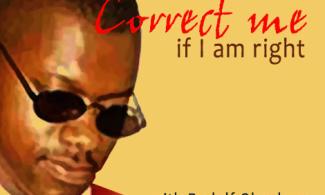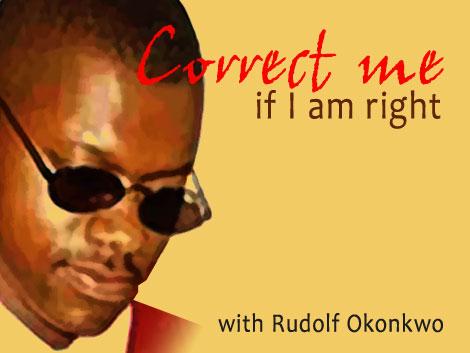
For over a decade, the drumbeat of Africa rising has been punctuated by the piano chords of Africa sliding back into its usual habits of poor governance, shrinking political space, and corruption. No country manifests these mood swings like the West African nation of Nigeria.
For over a decade, the drumbeat of Africa rising has been punctuated by the piano chords of Africa sliding back into its usual habits of poor governance, shrinking political space, and corruption. No country manifests these mood swings like the West African nation of Nigeria.
Despite recent economic and democratic gains, the World Bank reported that more people currently live in extreme poverty in Sub-Saharan Africa than in 1981. Most of these extremely poor Africans live in Nigeria. In February, World Poverty Clock used data from the International Monetary Fund, World Bank, United Nations and others to estimate that Nigeria has finally overtaken India as the country with the most people who live in extreme poverty. The World Bank estimates that there are 82 million people in Nigeria who live in extreme poverty, which is 42.4% of Nigeria’s 180 million people. According to the World Bank, extreme poverty is defined as people who live on less than $1.90 a day.
Besides poverty, or perhaps as a result of it, there are more failing states in Africa today than there were two decades ago. Africa is today a continent where radical Islamic insurgency is spreading from Boko Haram in the Chad Basin of West Africa to al Qaeda in Islamic Maghreb and down to al Shabaab in East Africa.
In a 2017 Fund for Peace and Foreign Policy magazine’s Fragile States Index, Nigeria was ranked 13. Nigeria shared the top 15 spots with countries like Yemen, South Sudan, Syria, Afghanistan, and Somalia. Internal Displacement Monitoring Center estimated that as of December 2017, there were 1.9 million internally displaced people in Nigeria. The conflict between Fulani-Herdsmen and farmers across Nigeria’s middle belt region created a new batch of 200,000 displaced citizens in the last three months alone. Widespread corruption has continued unabated. In February, Transparency International reported that corruption had worsened in Nigeria, placing Nigeria at 148 out of 180 on the list of most corrupt countries in the world.
Nigeria’s socio-political situation was compounded by political unrest in the form of Boko Haram insurgency in the North East, Niger Delta militancy in the South-South and resurgence of secessionist movements in the South East and other regions in the South. While the Boko Haram insurgency placed Nigeria on the list of failing states, the militancy in the Niger Delta once disrupted oil production, which is the lifeline of the country. Crude oil sells account for 80% of Nigeria’s external earnings. Nigeria’s meager economic growth, estimated to be 0.8 in 2018 by the IMF, is not keeping pace with Nigeria’s population growth. By 2050, Nigeria’s population, currently at 180 million, is expected to reach 400 million, making it the third most populous country in the world. If the world has any chance of meeting the UN Sustainable Development goal of eradicating extreme poverty by 2030, Nigeria must do more to diversify its economy and advance its political structure to create the favorable environment for those millions of young people to thrive.
In Nigeria, a new election for president will take place in less than ten months. The incumbent president, 75-year-old Muhammadu Buhari is widely expected to run even though he has not made it official. He is also under intense pressure at home and abroad to drop out of the race and leave the stage for a younger leader who has the stamina and modern worldview to manage the affairs of a diverse country like Nigeria.
Despite a spreading sense of insecurity in the country since Buhari took over in 2015, he continues to have significant support in Nigeria, especially in the Northern part of the country. Since January of this year, over 1351 people have died in clashes between Fulani herdsmen and farmers, as well as in the perennial Boko Haram insurgency that has devastated much of the North East. In February, 110 schoolgirls were kidnapped in Dapchi, Yobe State. They remained in Boko Haram custody until last month when a negotiation led to the release of all but one of the girls. Five of the girls died during their ordeal. Meanwhile, over 100 of the 276 Chibok schoolgirls kidnapped in 2014 have not been rescued or accounted for.
By being selective in his prosecution of corruption in Nigeria and by tilting his political appointments in favor of his own people in the North, Mr. Buhari squandered the goodwill he had when he was elected. Those who overlooked his flaws with the hope that he would effectively tackle corruption and restructure the unbalanced federation have been left with the short end of the stick. In spite of a performance that has been adjudged to be below expectation, the opposition parties have not capitalized on Mr. Buhari’s failures to put up a formidable front that could inspire confidence in the Nigerian electorates. Partly due to a daily revelation of the massive lootings that occurred prior to Buhari’s election as president, some Nigerian electorates are worried that a return of the opposition may mean a return to the era of unlimited looting. While there are younger Nigerians aspiring for elective offices, including the presidency, the tools of political ascendancy still remain in the hands of the political establishment.
In 2015 election, Buhari led Nigeria’s opposition party to defeat the ruling party. It was the first in the history of the country. Today, Nigeria is at another crossroad. And this one is a lot tougher. It is at the heart of most of Africa’s political problems. It poses the question of whether an old and ailing president would relinquish power as Nelson Mandela did in South Africa and let a younger leader to emerge to lead a country where 70% of its citizens are under 30, or stay put and exacerbate the problems that have already polarized his country to a level never seen since the 1967-1970 Nigeria-Biafra civil war.
With the cult-like following that Mr. Buhari still enjoys in most parts of Northern Nigeria, political observers are sadly coming to the conclusion that if Buhari wins Nigeria’s 2019 presidential election, Nigeria is finished. And if he loses, Nigeria is finished. The only thing that will save Nigeria is if Buhari stands down.
Rudolf Ogoo Okonkwo’s latest book is, This American Life Sef.
